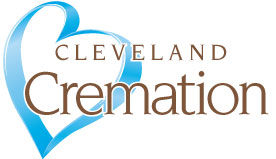FAQ’s about Cremation
April 26, 2012
Cleveland Cremation is here to answer questions at any time.
Here is a list a few commonly asked questions. Always feel free to call
Cleveland Cremation at 440-238-1200 so we can help you in answering any questions or assist you in any way we can.
1) What is cremation? Cremation is an alternative way of burial. Cremation consists of reducing a body using heat and flame into cremains which then can be buried, placed in an urn or scattered.
2)What is a direct cremation? A direct cremation is when the person is picked up at the place of death and taken directly to the crematory.
3) Is embalming required for a cremation? No, embalming is not required for cremation to take place. With that being said, embalming may be needed if the family chooses to do some type of services before the cremation takes place.
4) Do you have to purchase an urn for the ashes? Generally speaking, no. An urn doesn’t have to be purchased. If you plan to inter the ashes, cemeteries have their own specific guidelines about the type of urn that they may require. We will walk you through that process.
5) Who can authorize cremation to take place? The next of kin is the person who is allowed to authorize the cremation to take place. In some cases where there is no next of kin, your cremation specialist will help you to determine who can authorize the process.
6) Can you view the cremation? Yes, there are family witnessed cremations. Most cremation specialists will have an additional charge for this service and require permission from the next of kin. There is a section on the Cremation Authorization Form regarding this topic.
7) Can you scatter the ashes? Yes, ashes can be scattered. There are EPA rules and regulations that need to be followed when doing this if it is NOT done on private properly.
8) What is a good website a customer can use as a consumer resource guide? The below link has very valuable information for consumers regarding cremation.
http://consumer.iccfa.com/faq/6
9) Are cremations done individually? Yes. All cremations are done individually. That is regulated by strict laws.
10) Can you bring your own urn? Yes, if a family chooses to bring their own urn, they most certainly can do so. There will be a discussion about the size of the container, how the container closes, and if all the ashes are to be in one container or multiple containers.
11) Is cremation permitted in all types of religions? Most religions permit you to chose cremation if you want but there are some that do not permit this type of burial. If you have specific questions regarding religion and cremation, it is best for you to contact a member of your clergy for clarification.
12) If your spouse was buried in a casket, can your cremated remains be buried with them? Yes, that is possible. Once again, it depends on each cemetery and their guidelines. Many cemeteries allow for multiple cremations to be interred in a single grave while some will allow the urn to be interred on top of the casket.
13) How long does the cremation process take? Generally speaking, the process takes about 2 – 2 1/2 hours.
14) After the death occurs, when can the cremation take place? Cremation is such a irreversible process that many states require a waiting period before cremation takes place. In Ohio, the state requires a 24 hour waiting period. During that 24 hour period, the cremation specialist ensures that the entire family wants cremations as the form of burial and also contacts the doctor to sign the death certificate.
15) What can be done with cremated remains? There are many options for cremains. Cremains can be interred at a cemetery, scattered on private property, scattered on a lake or ocean, or retained by family members in an urn or similar container.
16) What is a columbarium? A columbarium is a free standing building, indoors or outdoors, located in a mausoleum or chapel. There are numerous small compartments designed to hold urns.
17) Can you do a service before or after the cremation? This is completely the family’s decision. A service for the deceased can be held in either situation and the cremation specialist will discuss that with the next of kin and the family.
These are just a few common questions about cremation and the process.
Please feel free to contact Cleveland Cremation at anytime if you have questions or we can clarify anything.

